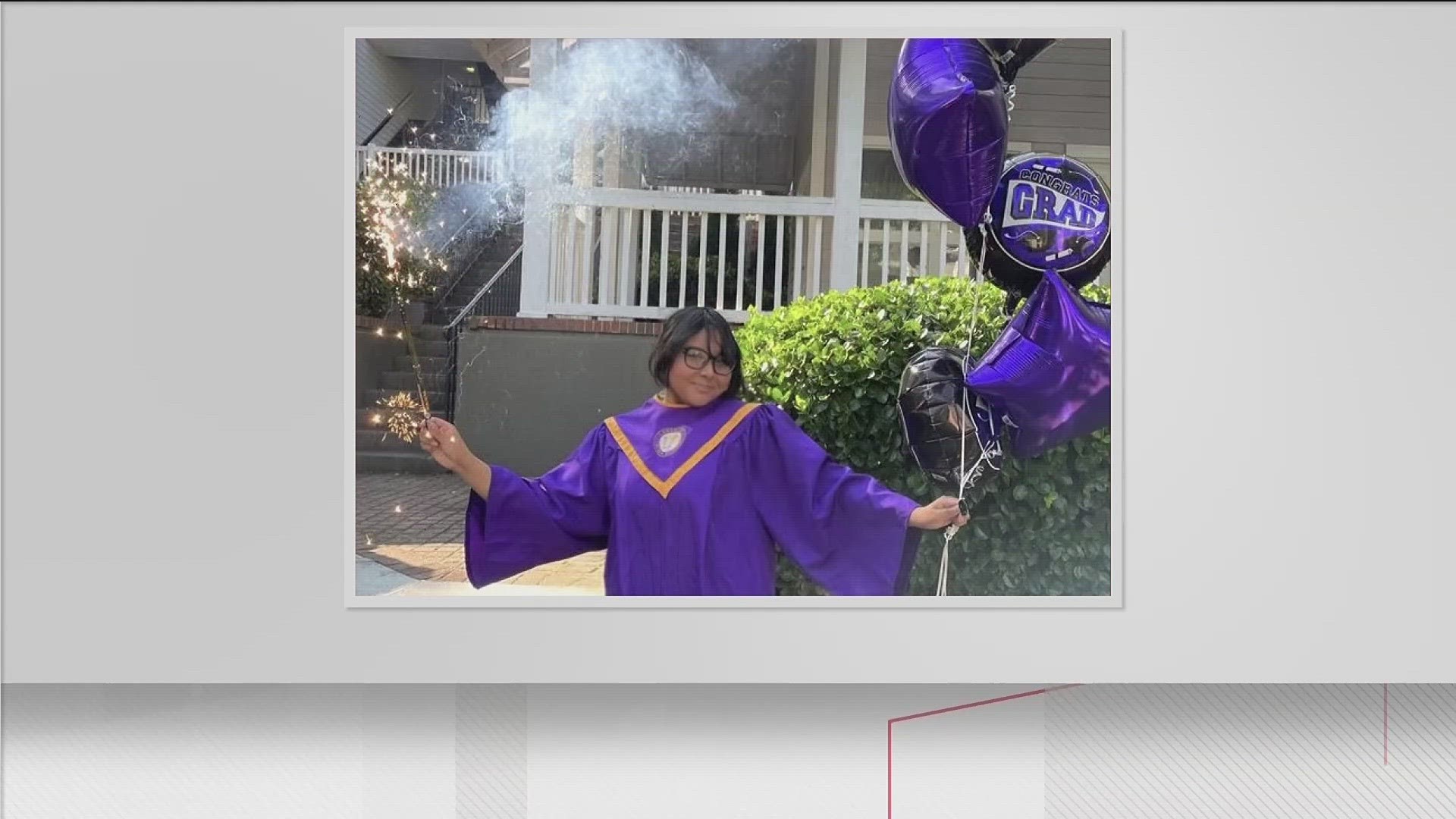ATLANTA — Several undocumented students recently spoke out about their challenges in pursuing higher education, sharing their experiences and aspirations at the Southeastern Writing Center Association conference.
Their mission: to support fellow students in overcoming barriers imposed by state tuition bans.
Among them, one student, who chose to be identified only as Sherly due to her undocumented status, bravely opened up to 11Alive's Bobeth Yates, shedding light on the hurdles she has encountered.
Sherly, originally from Honduras, migrated to the United States with her mother and brother in 2014 at the age of 8. Growing up in metro Atlanta, she attended elementary, middle and high school, only to confront a harsh reality as she approached graduation.
“We took the same school but so I always thought to myself what makes me so different than you that I can’t pursue my dreams,” Sherly said, adding later, “At the end of 11th grade, when I was doing my research for college possibilities, that’s when I realized that my legal status would heavily affect my ability to go to college."
Dr. Laura Emikosoltis, the Executive Director of Freedom University, a nonprofit organization aiding undocumented students in accessing higher education, emphasized that Sherly is one of over four thousand undocumented students graduating from Georgia high schools annually. However, due to existing state laws, these students face obstacles in applying to certain colleges or are burdened with exorbitant out-of-state tuition fees.
“In 2008, the Georgia legislature passed SB 492, which banned undocumented students from paying in-state tuition," Emikosoltissaid said. "Sadly, two years later, the Georgia Board of Regents went further and passed Policy 416, which bans undocumented students from even applying for admission to the top public universities, including the University of Georgia, my alma mater, Georgia Tech, and Georgia College."
Consequently, undocumented students, when admitted to colleges, endure tuition fees three to four times higher than their peers. To address this injustice, Emory University and Freedom University collaborated on an essay writing workshop aimed at assisting undocumented students in applying for scholarships.
"We have already invested $125,000 into each student's K-12 education, and we are literally throwing away that investment by banning undocumented students from in-state tuition and funneling them into low-wage jobs,” Emikosoltis said.
Despite recent efforts, including a proclamation by the Atlanta City Council urging state lawmakers to support in-state tuition and equal access to higher education for undocumented students, Republican Representative Casey Carpenter expressed skepticism regarding the bill's prospects.
“It’s the same old song and dance. People ask me all the time, what are you working on? I’ve been working on it for five years," Carpenter said. "I think it’s great. I think it’s a great thing for Georgia and a great thing for the Republican party; we just have to make people understand this has nothing to do with the border."
Nevertheless, despite the challenges and political hurdles, students like Sherly remain hopeful, embodying resilience and determination in the face of adversity.
“Although there are many policies, many laws, many people that want to knock me down, they wanna see me fall, I’ve learned to hope,” she said.
And that positive outlook has paid off; Sheryl was accepted into Angus College and offered a full-ride scholarship.

